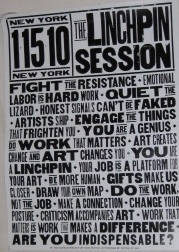Nearly every week, I get asked, or I see someone ask, “What email marketing response rate can I expect to get?” Or, “How many clickthroughs should I see in my email campaigns?.”
It’s perfectly OK to want to know how you measure up, or whether your rates are “good” or “bad.” The truth is, it depends.
Your mileage may vary
The mileage you get on your car will vary based on what sort of car you have, how fast you drive, the condition of your brakes, whether you drive in the city or on the highway, and many other factors.
Something similar happens with email marketing. Each campaign, and each offer, is different. Some campaigns get better results during the work week, or even on a particular day or time of day. Others perform better over the weekend when visitors have more leisure time.
One company’s campaigns might do well with a conversion rate of 4%. Another business might boast conversion rates of 10%. That doesn’t necessarily mean that the second business is earning more money. The first one might be selling a more expensive product. The second could be measuring based on open rates, rather than an actual sale.
Why conversion rates differ
Conversion rates can go up or down based on a hundred different variables. For example, a Star Wars Halloween mask, will sell more readily (and quickly) than an industrial pump. The mask is cheap, simple, and doesn’t require a drawn-out research, bidding, or procurement process. The pump probably does.
A free offer will get more responses than an offer that costs money. There’s no obligation and no monetary risk involved.
Responses can also differ based on the copy, the benefits of the product, the format, the quality of your offer, how will it fits your audience’s needs, and a hundred other factors.
It can even vary based on how you count conversions. Is a conversion an open? a click? an inquiry? or a sale?
Yes, you can compare your rates
There are lots of general email marketing reports showing breakdowns by industry, time of day, and day of the week. They show open rates, click-through rates, deliverability (how many messages get where they’re supposed to go), conversion rates (how many people fill out your lead generation form or buy your product or ask for a meeting – whatever the purpose of the email is). Here’s the latest email marketing metrics report from Mailer Mailer. These reports can be useful to give you a general idea of how your business compares to others in your industry. Just apply the appropriate quantity of salt when you look at them.
Your results are what matters
It’s nice to know how other people are doing, and reports are great as a general guide. What really matters is how you’re doing. Compare your campaigns against each other.
Which emails had the highest open rates? Which ones got the most clicks? Have you tried to write better headlines (subject lines)? Or testing one headline against another?
Watch your deliverability statistics and your unsubscribe rates. If you have a large number of people leaving your list, find out why people are unsubscribing from your emails.





